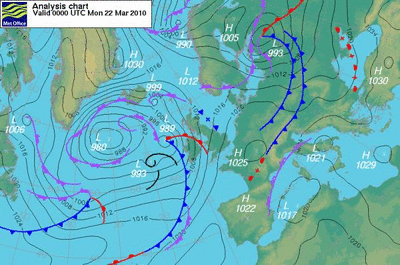(Assuming you have internet connection and an academic email of course.)We had our second dissertation seminar this Monday, and one of the issues raised was reading academic journals outside the university library system. Take
Google Scholar for example: it may be one of the best search engines around, but links usually take you to a title page and abstract...much to your annoyance the actual thing is coyly hidden behind a text link reading 'subscribe now for ridiculous £££/year!' Bummer:(
Let me assure you that 80%
* of the time, you can laugh in the face of that silly little link. Those dreaded tuition fees and student loans and moldy food? It all boils down to the privileges of being a student in a developed country - for one, you get access to millions of journals for free. University has actually done some dirty work before robbing us of our life savings, hurrah!
Right. Now if you're in the library, external journal providers are obviously going to know you've paid up. The problem is when you use
Google Scholar on some unregistered computer (any laptop/computer that's not connected to the university or residential network), they won't know that. So you have to log in to get access. Assuming the university has paid for the service, there are two ways to do this:
- Log in via Shibboleth, or
- Connect via Virtual Private Network (VPN)
The first option is for quickies - you search for a paper on
a search engine, open the title page, and find a link that says 'login via institution' or something similar. (You might have to click on 'login' to find it.) From there you'll be able to choose your university and log in via Shibboleth using your uni account.
I'm spiffy. £££/years are not.
Shibboleth is still a fledgling system, only implemented in
July 2008; we are very lucky to be the first to use it. Such a charming
name too:)
But this might get fiddly if you're embarking on a paper safari. For large-scale trawling it's just easier to use a uni computer - or better yet,
pretend you're using one. Seriously that's what VPNs are all about. You set up a connection on your laptop, and them lovely uni servers will assign you a temporary uni IP address (a computer's 'name'), effectively disguising you to the world at large. Computers are stupid and won't know the difference. Proof: during holidays I use the uni's VPN to get past the notorious
Great Firewall of China and surf Wikipedia and Facebook to my heart's content.
It's a breeze to set up. Searching 'VPN' on your uni's website will tell you all you need to know.
[Lazy Sheffy geoggers click here] Incidentally our remote access password is called 'RATS' (Remote Access to Sheffield). Rats...moles...we seem to have a thing for tiny rodents:D Thus lamely concludes this rather long-winded post...erm I wish I could write my essays with such gusto! One can wish, right?;)
*Wild speculation; no research done whatsoever.
UPDATE
Lina very kindly pointed out something I missed:
There is a third way though it's basically same as the one via Shibboleth. In the Google Scholar preferences add "Library Link" for Sheffield Uni library (or another library). Then the articles which you can access via Uni will have "Find@Sheffield" near search results. If you are logged in the MUSE (in another window/tab), you won't need to enter user name/password. Of course, via VPN is probably the most convenient way but if you have problems with VPN connection...
 and it may even get featured on the blog!
and it may even get featured on the blog!







.jpg)














